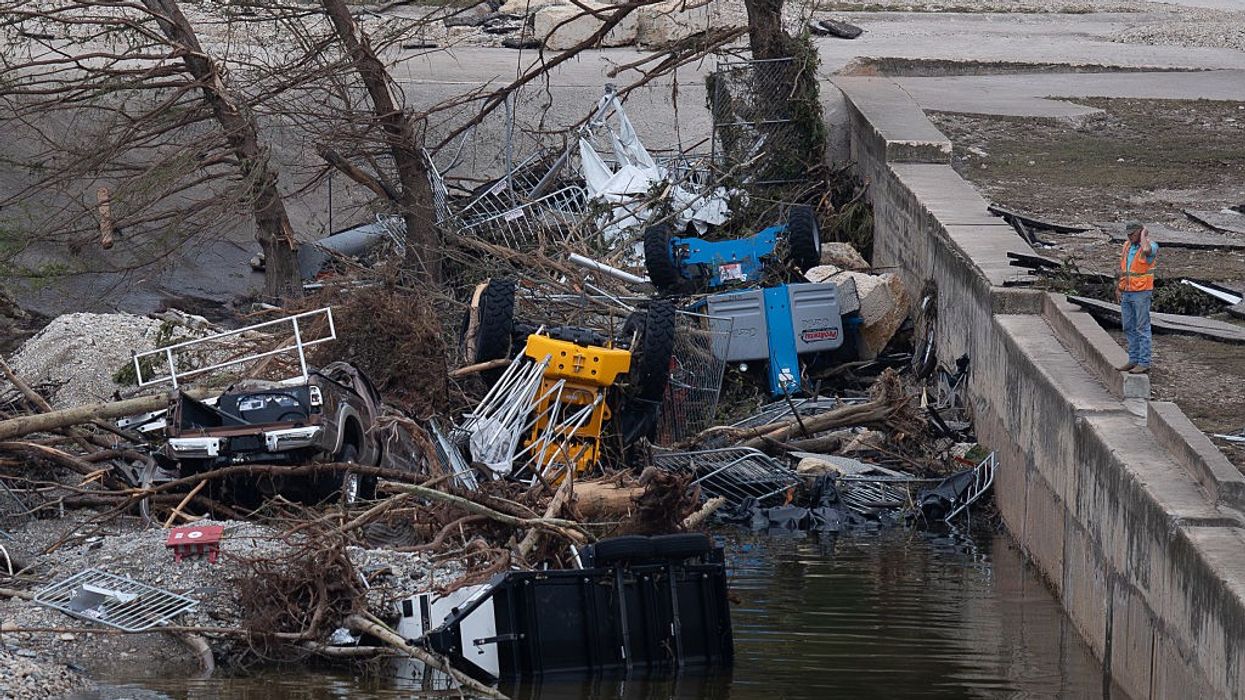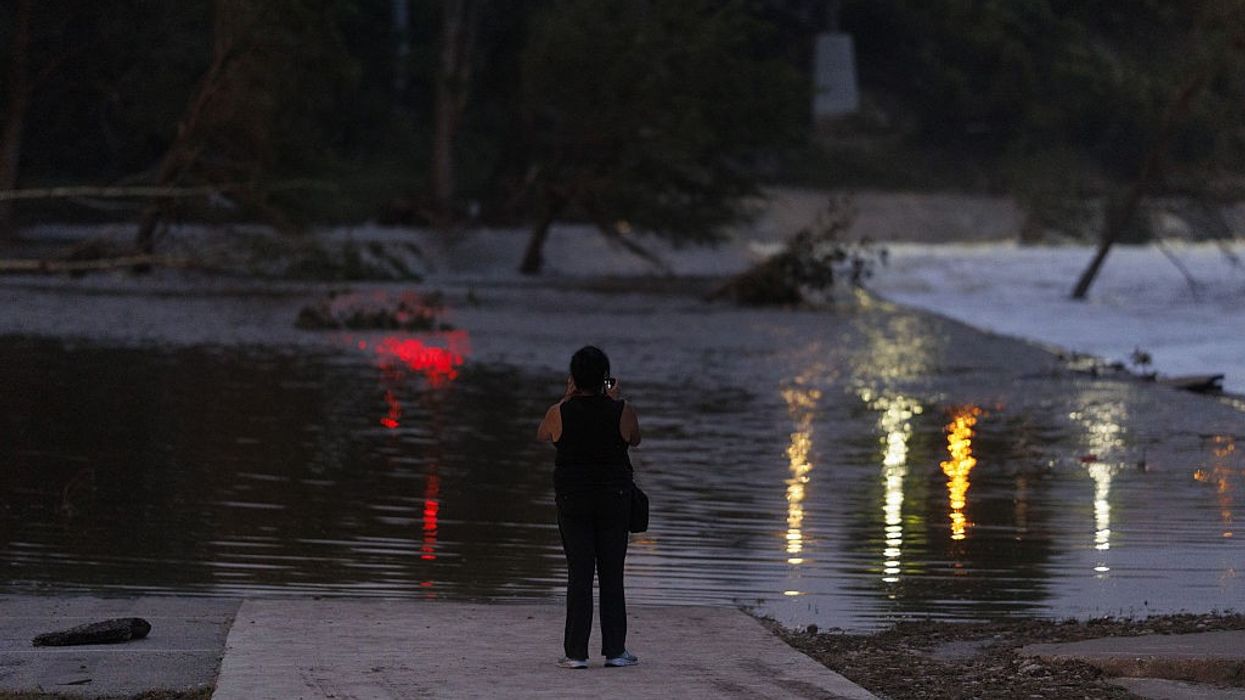As Hurricane Erin Bears Down, FEMA Still Holding Up Millions in Funds for North Carolina
"Trump's reckless actions have left Americans vulnerable and unprepared," said a senior adviser at Climate Power.
As Hurricane Erin batters the East Coast, North Carolina has been left in the lurch by a Federal Emergency Management Agency (FEMA) badly battered by the Trump administration.
WRAL reported Tuesday that the Tar Heel State is still waiting on $13 million in federal disaster preparedness grants from FEMA.
This is on top of the hundreds of millions of dollars in recovery funds for last year's devastating Hurricane Helene, which the agency has promised but not yet delivered.
North Carolina Gov. Josh Stein told reporters Tuesday that $85 million would begin flowing from FEMA to the state to fund recovery from Helene.
That announcement came after Stein sent US Secretary of Homeland Security Kristi Noem a letter in July asking why she had not signed off on the disbursal of the desperately needed funds.
"Applications submitted as far back as February 2025 remain without a final decision," Stein wrote in the letter, which laid out $209 million worth of Helene recovery projects still awaiting her sign-off. "Further delay of these funds keeps communities and families in limbo, all while we are in another dangerous hurricane season."
Even though some funds are reportedly flowing, Stein says the government has yet to reimburse North Carolina for over $100 million.
"It creates real financial strain, especially on local governments, but also the state," Stein said in a press conference.
Noem's leadership of FEMA came under severe scrutiny earlier this summer after it was reported that her policies hampered the agency's ability to respond to the devastating flooding that killed at least 138 people in Texas.
In June, Noem introduced a new policy requiring all FEMA expenditures over $100,000 to be personally approved by her, which officials within the agency said led to the deployment of search and rescue teams being delayed for days.
Two-thirds of the phone calls from desperate Texans to FEMA also went unanswered after Noem allowed hundreds of contractors to be laid off just a day after the storm hit.
The Trump administration, meanwhile, has implemented massive staff cuts to the agencies responsible for hurricane preparedness.
It laid off hundreds of employees at the National Oceanic and Atmospheric Administration's (NOAA) storm laboratory, including hurricane hunters and researchers.
Nearly half of the National Weather Service (NWS)'s forecasting offices have been left critically understaffed, with around a quarter lacking a meteorologist-in-charge.
On the ground, there are about 20% fewer permanent FEMA staff responsible for responding to hurricanes and other disasters. Emergency training for those who remained on the job was also rolled back.
Sarah Galvez, Climate Power's senior adviser for climate urgency, says that communities in the path of Hurricane Erin "are being put at risk thanks to the Trump Administration gutting the forecasting that people rely on during extreme weather."
Since 1980, as the planet has warmed, the number of significant hurricanes (classified as Category 3 or greater) has doubled. In recent years, they have also begun to intensify more rapidly as they approach landfall, giving forecasters less time to catch them and residents less time to respond.
But as part of a multi-pronged assault on climate science, Trump has also made it harder to track these and other disasters. In May, NOAA announced that it would no longer track the number of disasters resulting in over $1 billion in damage.
"Fueled by the climate crisis," Galvez says, "major hurricanes are only becoming more frequent and severe, but Trump's reckless actions have left Americans vulnerable and unprepared."
On Tuesday, Reps. Greg Casar (D-Texas) and Joe Neguse (D-Colo.) introduced legislation aimed at rolling back Trump's cuts to these agencies.
Hurricane Erin is hitting the East Coast right now.Earlier this year, Trump slashed funding for FEMA and NOAA — the agencies that keep us safe before and after disasters. My new bill would reverse Trump's cuts and restore crucial resources for families across the country.
— Congressman Greg Casar (@repcasar.bsky.social) August 20, 2025 at 1:12 PM
"As we continue to face increasing numbers of natural disasters across our country—wildfires, floods, hurricanes—it's critically important that we equip our communities with the resources they need," Neguse said. "Whether it's the preparedness programs run by NOAA and NWS, or the response and recovery initiatives managed by FEMA, our federal agencies play a crucial role in addressing the increasing frequency of disasters."


